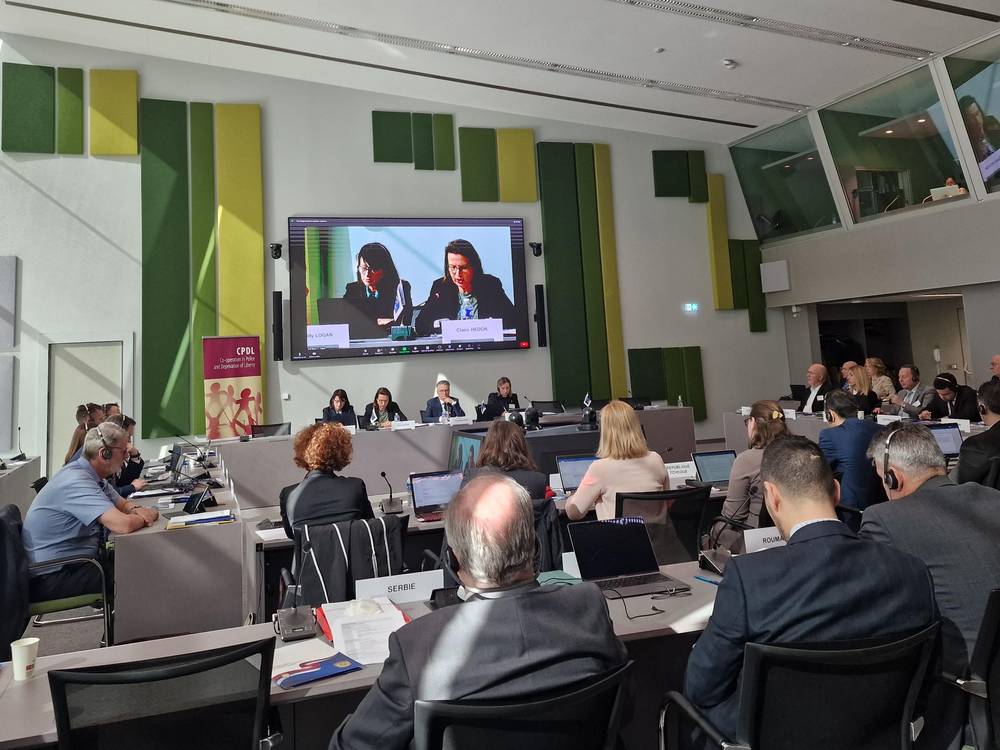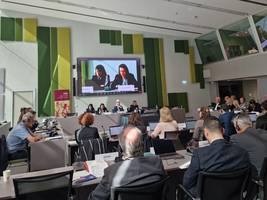From 23 to 25 May 2023 in Strasbourg, France, Deputy Ombudsman Ivan Šelih participated at the meeting of the Independent Police Complaints' Authority Network (IPCAN), of which the Human Rights Ombudsman of the Republic of Slovenia (Ombudsman) has been a member since last year. IPCAN is an informal network for exchange and cooperation between independent structures competent for external supervision of police and other security forces.
The meeting of the IPCAN network was devoted to a discussion about the use of force by the police, primarily to police procedures when guarding protests. In his presentation Deputy Ombudsman Šelih highlighted some of the Ombudsman’s recommendations from his findings while supervising police procedures during the performance of tasks of maintaining public order at protests during the COVID-19 epidemic. He emphasised that the police must realise that actions of the police officers when accompanying protests can have a great influence on the protesters’ behaviour. Therefore, police officers should strive to contribute to the greatest possible extent to the calming of the situation and prevent the potential aggravation of the situation with calm and thoughtful actions.
When monitoring protests and conditions permit, police officers should focus their actions primarily on the worst offenders. Such an approach is important because distinguishing between protesters can influence the subsequent behaviour of the crowd. In doing so, the police should also pay special attention to the undesirable effects that the use of coercive means can have on non-involved parties and those who do not actively resist, and consider whether the police officers have powers available that will allow them to primarily focus on (the worst) offenders.
Deputy Ombudsman Šelih also stressed that, in the event of the dissolution of a protest, it is important that the police, when the circumstances allow it (especially shortly after the dissolution), use a gradual approach in the use of police powers and show a certain restraint in the use of coercive means. This can generally allow a reasonable amount of time for non-violent participants to disperse freely. Here, it is also important that the enforcement of police measures in time and space is primarily aimed at a specific event that represents a serious and mass violation of public order, and that the possible use of coercive measures against the crowd is carefully considered in relation to the need to establish public order in a specific situation.
Regarding the use of gas agents, it is recommended that the police establish clear and harmonised instructions regarding their approximate quantity and use in future possible cases, based on various factors such as weather conditions, crowd size, and configuration of the surroundings. When specifically ordering the use of coercive means, such as gas, in the field, special attention should also be paid to the need for coordination in the performance of police tasks. In doing so, clear and immediate instructions or orders from superior leaders must be given to police officers, which can also be adapted depending on the situation. Such instructions can enable a more deliberate and appropriate use of coercive means as well as preventing their excessive use.
While exchanging experiences and especially problems and challenges in their work, IPCAN members also adopted a declaration on the use of force by the police, which will be published after coordination.
On 24 and 25 May 2023, representatives of the IPCAN network participated as observers at the annual conference of the Network of National Correspondents of Police Authorities of the Council of Europe entitled "Police activities in the context of violence and use of force". Representatives of ministries of the interior and/or the police discussed situations in which violence and the use of force occurred. They highlighted the need for proportionality in the use of force and the commitment to calm tensions and appropriate communication as an advantage in the operation of the police in democratic societies. At the same time, they also got acquainted with the jurisprudence of the European Court of Human Rights regarding the use of force and mechanisms of control over the police in the Member States of the Council of Europe.

